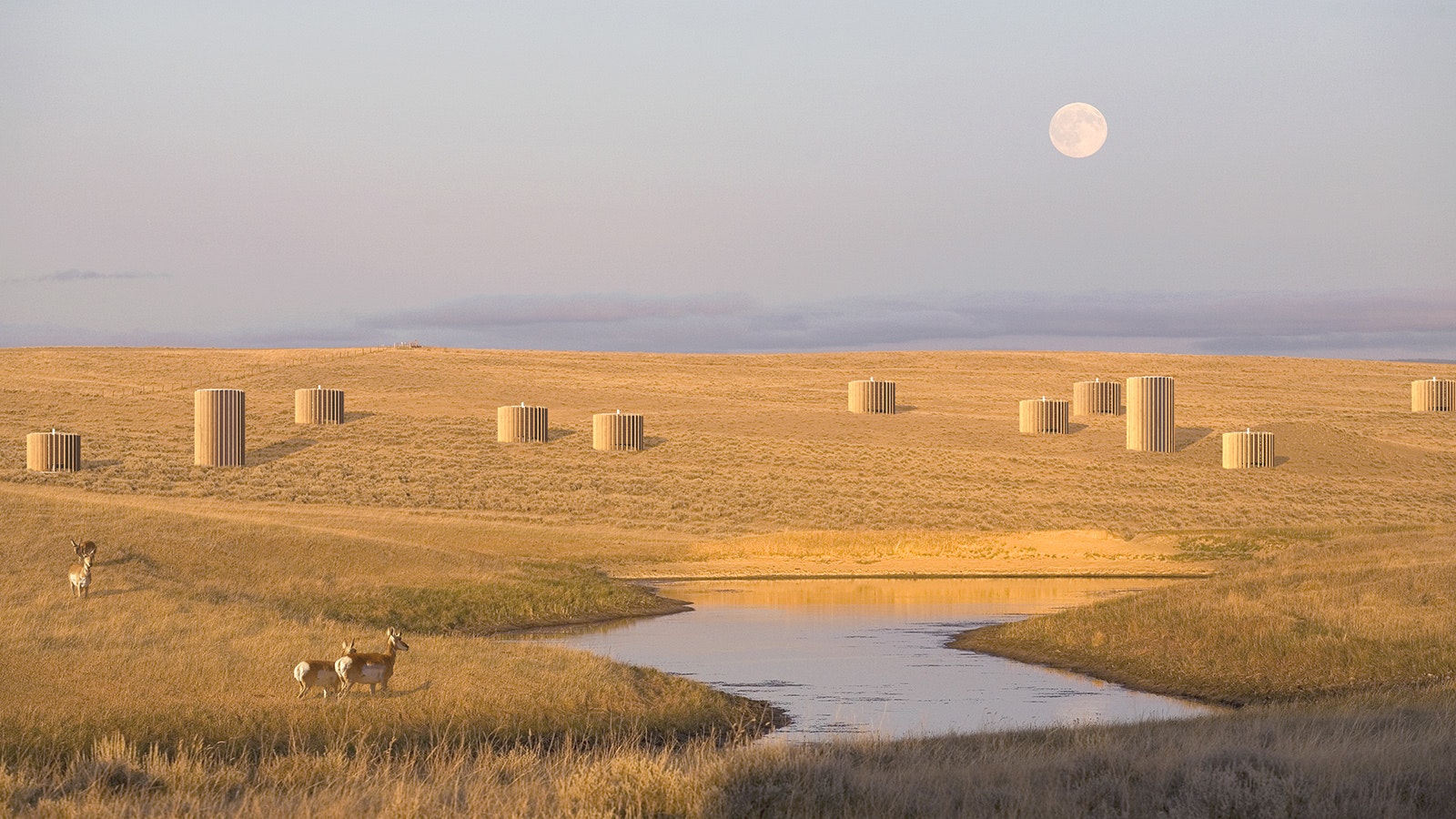The Saudi government-backed Aramco Ventures is making itself a player in central Wyoming’s push for clean air.
The venture capital investing arm of oil giant Aramco, one of the world’s largest companies that is largely owned by the government of Saudi Arabia, has made an undisclosed equity investment in Spiritus Technologies.
Spiritus is a clean technology company that wants to build a big field of silos to draw hundreds of thousands of tons of carbon dioxide out of the air and store the gas in underground caverns in central Wyoming.
In a recent announcement, Spiritus Technologies CEO and co-founder Charles Cadieu and a senior executive with Aramco agreed to explore further collaboration between their businesses on the potential piloting and large-scale deployment of Spiritus’ technology, as well as developing a supply chain for its technology in the United Kingdom and in Saudi Arabia.
Spiritus also said that Aramco Ventures made an undisclosed equity investment last November. The San Francisco-based company did not disclose the amount of the investment.
Other Saudi-US Links
Crunchbase, an online tracker of venture capital investments, said that Spiritus raised $11 million from Aramco Ventures, Menlo Park, California-based Khosla Ventures and San Francisco-based Page One Ventures in September 2023.
A Spiritus spokesman couldn’t immediately confirm the size of the investment as reported by Crunchbase.
A memorandum of understanding (MOU) outlining the scale of the cooperation between Spiritus and Aramco was recently signed by Cadieu and Ali Al-Meshari, senior vice president of Aramco, in Los Alamos, New Mexico.
One of the co-founders of Spiritus formerly worked near the Los Alamos National Laboratory in New Mexico, where he worked on weapons development.
The MOU agreement was signed in front of U.S. Energy Secretary Jennifer Granholm, and His Royal Highness Abdulaziz bin Salman Al-Saud, Saudi Arabia’s Energy Minister.
Aramco views Spiritus’ approach to direct air capture as having the potential to “scale globally, and specifically in the Middle East,” according to Al-Meshari.
“We believe direct air capture has the potential to play an important role in reducing carbon emissions from hard-to-abate sectors of the economy,” he said.
The deal with Spiritus is in line with Saudi Arabia’s goal of achieving significantly lower greenhouse gas emissions across all its properties by 2050.
Spiritus isn’t the only clean technology firm helping the Saudis.
Last December, Bellevue, Washington-based TerraPower LLC, which is building a Natrium nuclear reactor demonstration project in Kemmerer, Wyoming, signed an MOU with the Saudi government’s nuclear development organization, Emirates Nuclear Energy Corp., to explore opportunities for the commercialization and global deployment of its mini-reactor technology.
Regarding Spiritus’ central Wyoming project, a company spokesman said that the startup plans to apply for permitting on the project “very soon” with the Wyoming Department of Environmental Quality’s Industrial Siting Council. The project, called Orchard One, will bring hundreds of jobs to Wyoming and will begin carbon removal in 2026.
When completed, the project will be capable of capturing and sequestering in underground geologic caverns up to 2 million tons of carbon dioxide from the atmosphere annually, Cadieu previously told Cowboy State Daily in March.
This amounts to roughly the emissions from 340,000 gas-powered pickups driven in a year.
Carbon Credits
The key to Spiritus’ technologies is its sorbent technology, which is an air cleaning technology designed to capture carbon dioxide.
Many direct air carbon companies use big, industrial-sized fans to pull air into their carbon removal systems, but Spiritus Technologies, a public benefits corporation registered in New Mexico near the Department of Energy’s Los Alamos weapons laboratory that researches and designs nuclear weapons, has a different approach.
In this case, wind will blow through the silos, which are filled with “thousands and thousands” of the balls that they call “fruit.”
In the descriptions of their invention, it’s necessary to understand the organization of an orchard.
For instance, each of Spiritus’s silos is called a tree, with 100 trees equaling a grove, with 10 groves equaling an orchard — which is the entire direct air carbon project, Cadieu explained.
An orchard of direct air carbon trees requires several hundred acres of land.
Spiritus plans to earn money by receiving carbon removal credits from big corporations that need to offset their carbon footprint.
Spiritus has lined up the pre-sale of carbon removal credits to a group of businesses, including Frontier Climate Management LLC, a consortium of big social media companies looking to buy carbon removal credits, San Francisco-based Watershed Technology Inc. and Terraset, a Colorado-based nonprofit that buys carbon removal credits.
Carbon removal credits are measurable, verifiable emission reductions from certified climate action projects, like the one proposed in Wyoming. These projects reduce or remove greenhouse gas emissions.
Pat Maio can be reached at pat@cowboystatedaily.com.





